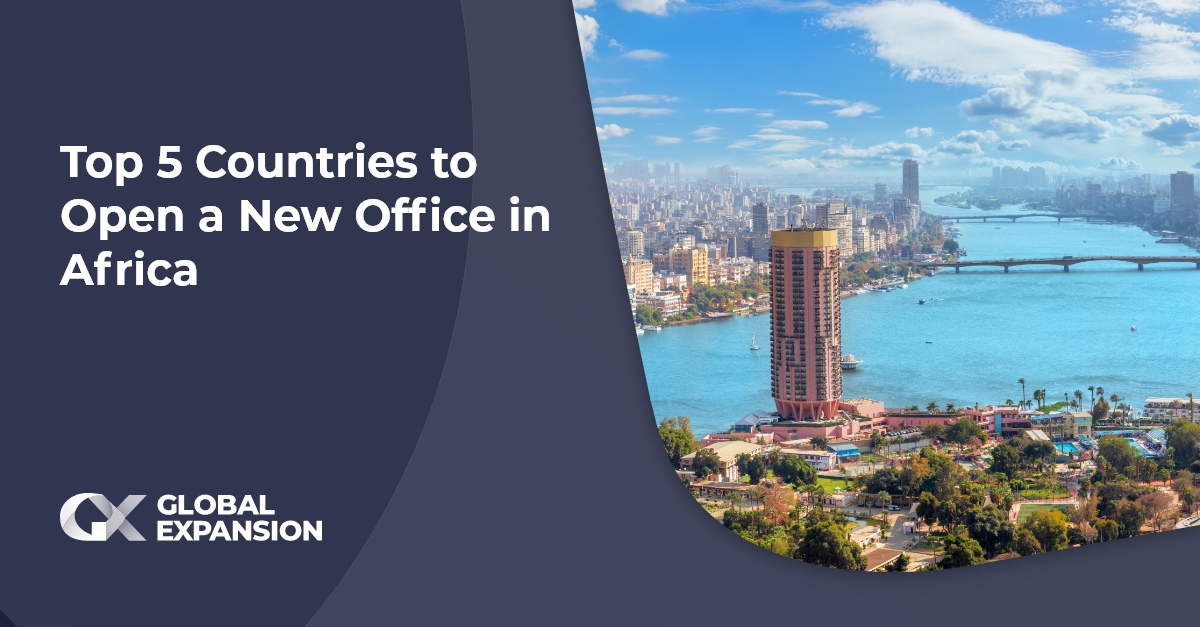To remain competitive in the modern business landscape, global expansion is necessary. Many US-based and international businesses are looking at American states as potential targets for expansion, due to expanding populations, favorable tax rates and venture capital investments.
While every state is different and some may offer certain advantages for certain industries, we’ve compiled a list of the best states to open a new office in. The USA is a large country, so read on to find the best expansion targets.
N.B. This blog was written in September 2020. Due to the impact of COVID-19, the information represented in this blog could change. Much of the information below was sourced from pre-COVID studies.
1. Arizona
While Arizona is a popular state for retirees, it’s also proving to be a great state to open a new office. Over five years, up until 2019, the working-age population had grown by 6.8%, meaning there’s a larger number of talented potential candidates for you to grow your ranks with.
Similarly, Arizona’s economy is also on the up. From a lull in 2009 (caused by the 2008 financial crisis) Arizona has steadily grown its GDP per capita, which sat at a healthy £44,161 in 2019, a growth over five years of 6.8%.
In terms of labor costs, the average wage per hour in Arizona by industry is:
-
Manufacturing - $29.78
-
Financial services - $31.82
-
Trade, transportation and utilities - $25.68
-
Leisure and hospitality - $17.49
From the effects of COVID-19, Arizona has only seen a 3.9% drop in GDP per capita (in the first quarter of 2020), one of the lowest in the entire US.
2. Utah
Utah was ranked by Seek Business Capital as the number one state to expand into or start a new business in. Over five years, beginning in 2013, the working-age population grew by a massive 9%. That’s around an extra 200,000 potential candidates to pick from.
Investments are also strong in the state. In terms of venture capital, 101 companies received $1.16 billion in funding. This is equal to around $11.5 million per company, which is just behind New York in terms of fund allocation.
With a GDP of $161.48 billion and a GDP per capita of $51,407, it’s a state that’s on the up. In fact, Utah was deemed the best economy by state by 24/7 Wall Street, even during COVID-19. In comparison to the US’ 1.9% average GDP growth rate, Utah is experiencing a 3.4% growth rate. On top of that, Utah can also boast:
-
A five-year annualized employment growth rate through June 2020: +2.4% (the highest).
-
June 2020 unemployment rate: 5.1% (2nd lowest).
-
Poverty rate: 9.0% (4th lowest).
Utah also ranks well in regards to the local climate of business tax. For example, Utah currently runs a corporate tax rate of 4.95%, which is actually one of the ten lowest in the country. Compare that to states such as Iowa (12%), Pennsylvania (9.99%), Minnesota (9.8%) and New Jersey (10.05%) and you stand to pay a lot less in corporate tax for the highest threshold.
3. Colorado
According to Kauffman’s Indicators of Entrepreneurship, the percentage of start-ups that remain in business in Colorado after a year of operating is 78.74%, which is in the 'good' median range. Colorado also has one of the lowest corporate income tax rates in the country - a flat rate of 4.63%.
Seek Business Capital states that the working-age population has increased by 7.2% over the last five years, one of the fastest rates in the US. GDP per capita was a whopping $61,311 and its GDP growth rate measured at a healthy 3.5% in 2019.
In 2018, Colorado actually experienced an annual growth rate of 3.8%, 0.4% faster than the US average. Combine this with the fact that small businesses with fewer than 100 employees have the largest share of employment in the state and you’ve got a fairly robust economy.
One downside is that the prices of real estate have gone up dramatically. For example, Denver’s office space lease rates go for around $30 per square foot. However, there is evidence that lease rates are dropping due to the COVID-19 pandemic. Similar drops happened countrywide after the 2001 dot-com crash and the 2008 financial crisis.
It’s also become an incredibly popular place to live. With a cool, dry, temperate climate and with geography that ranges from desert basins to alpine mountains to grassy highlands, it’s a very beautiful place to settle for new employees.
4. California
California is a progressive and sunny place and is incredibly popular with tourism. It’s also a perfect spot for start-ups or expansion projects, with the second-highest rate of new entrepreneurs in the US.
The five-year survival rate of new entities is 2.3% higher than the national average, at 53.2%, meaning that over half the businesses founded in 2014 were still operating in 2019. The job sector is also looking decidedly better than the US as a whole. In 2019, the state increased the number of jobs operating within its boundaries by 310,300, an increase of 1.8%.
California is also a good location for venture capital investments, with 2,869 companies receiving around $26.9 billion in funding. According to the US Department of Treasury, since 2006, more than 60% of US companies receiving venture capital investments were located in California, alongside Massachusetts.
It’s also a state with a massive increase in GDP over the last five years. From 2016 to 2017, the state’s GDP rose by $127 billion. In 2019, the entire GDP of the state was $3.2 trillion. This means that it has the fifth biggest GDP in the world, more than some countries. In comparison, the UK had a GDP of $2.21 trillion in 2019.
California is also a state with a varied and robust set of industries, ranging from tech startups to information technology, manufacturing and agriculture to financial services.
With its temperate climate, talent pools and progressive attitudes, California is easily one of the more attractive states to expand into.
5. Texas
In Seek Business Capital’s rankings of the best states to grow a business in, Texas comes in at third overall. Their GDP growth rate was 4.7%, higher than any other state on this list and they come in just after California with the second-largest GDP by state in the country, at $1.886 trillion.
From 2013 to 2018, the working-age population grew by 1.3 million people and 2.7 million small businesses within the state. With a relaxed regulatory environment and a supportive attitude to business, Texas has fast become one of the more lucrative areas to expand into.
It’s also a state that’s incredibly land-rich, meaning that the prices of rent and real estate are incredibly competitive. Land in Texas costs around 40% cheaper than the national average and the average rent price per square foot is $31.60.
Businesses can also enjoy Texas’ eschewing of both corporate and individual income tax, although they will have to pay corporate franchise, employment and sales taxes.
These are some of the best states to consider when it comes to expansion options. Each of them have their own regulations and tax climates that could fit well with your business type. However, it’s worth getting the support and guidance of an experienced Global Professional Employer Organization, who can help you through the process and ensure you remain compliant with specific national and state laws.
To find out more about expanding into the States and its specific regulatory obligations alongside the economic environment, download our guide.
Explore Our United States Guide for Your International Expansion
In our Global Employer Guide to the United States, you’ll discover all the information you need when considering the USA as a potential expansion destination. From statutory labor requirements to income tax regulations, social security obligations to immigration law, our guide is the go-to resource for US-specific expansion knowledge.
To get a copy today, click the download banner below.
Subscribe to our blog
Receive the latest GX blog posts and updates in your inbox.




